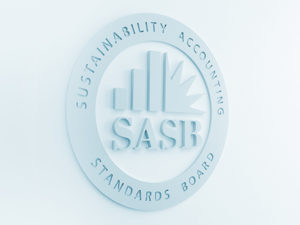
Gail Glazerman, CFA Analyst, Sector Lead – Resource Transformation and Renewable Resources
During its Dec. 4 meeting, the Sustainability Accounting Standards Board (SASB) announced a research project to assess investor interest in better incorporating risks and opportunities associated with single-use plastics into the Pulp & Paper Products and Chemicals industry standards.
A confluence of factors have intensified focus on plastics waste in recent years, potentially changing the business outlook. These include new Chinese restrictions on importing recycled waste from around the world (forcing exporters to divert waste to landfills); heavy media attention on the externalities associated with plastic in the oceans; a mounting global regulatory response restricting select plastics use at the local, national, and regional level; and, arguably most importantly, commitments by key consumer products, food, and beverage companies to change their packaging to ensure it is 100 percent renewable, reusable, and/or compostable. Many of the companies pledging to change their packaging have set aggressive targets, aiming for compliance by 2025.
With the potential for a major shift in the packaging supply chain within a fairly compressed timeframe, associated risks and opportunities are likely to materialize for companies operating in both the Pulp & Paper Products and Chemicals industries. In fact, many companies already appear to be adjusting operations with firms in both industries working on renewable (wood-based) resins; paper manufacturers introducing paper-based alternatives to traditional plastics; and chemical companies exploring technologies in plastics recycling, to name a few initiatives.
At present, these business activities are not fully reflected in the SASB industry standards, yet there appears to be potential for material financial impacts as these trends continue.
In accordance with the core tenets of SASB’s Conceptual Framework, the standards aim to capture financially material, decision-useful information that can be communicated to investors in a cost-effective way. A key element in determining which sustainability topics the standards will address is whether it is of interest to investors. As such, before embarking on a more extensive standard-setting project related to plastics, we intend to first survey the market to assess investor interest in this topic for both the Pulp & Paper Products and Chemicals industries. In addition to the formal outreach we will undertake with our Standards Advisory Group (SAG), other market participants, and key stakeholders, SASB welcomes public input and will provide updates as the project progresses.
Analyst Gail Glazerman leads SASB’s work in the Resource Transformation and Renewable Resources sectors. Subscribe to receive standards-related updates.


